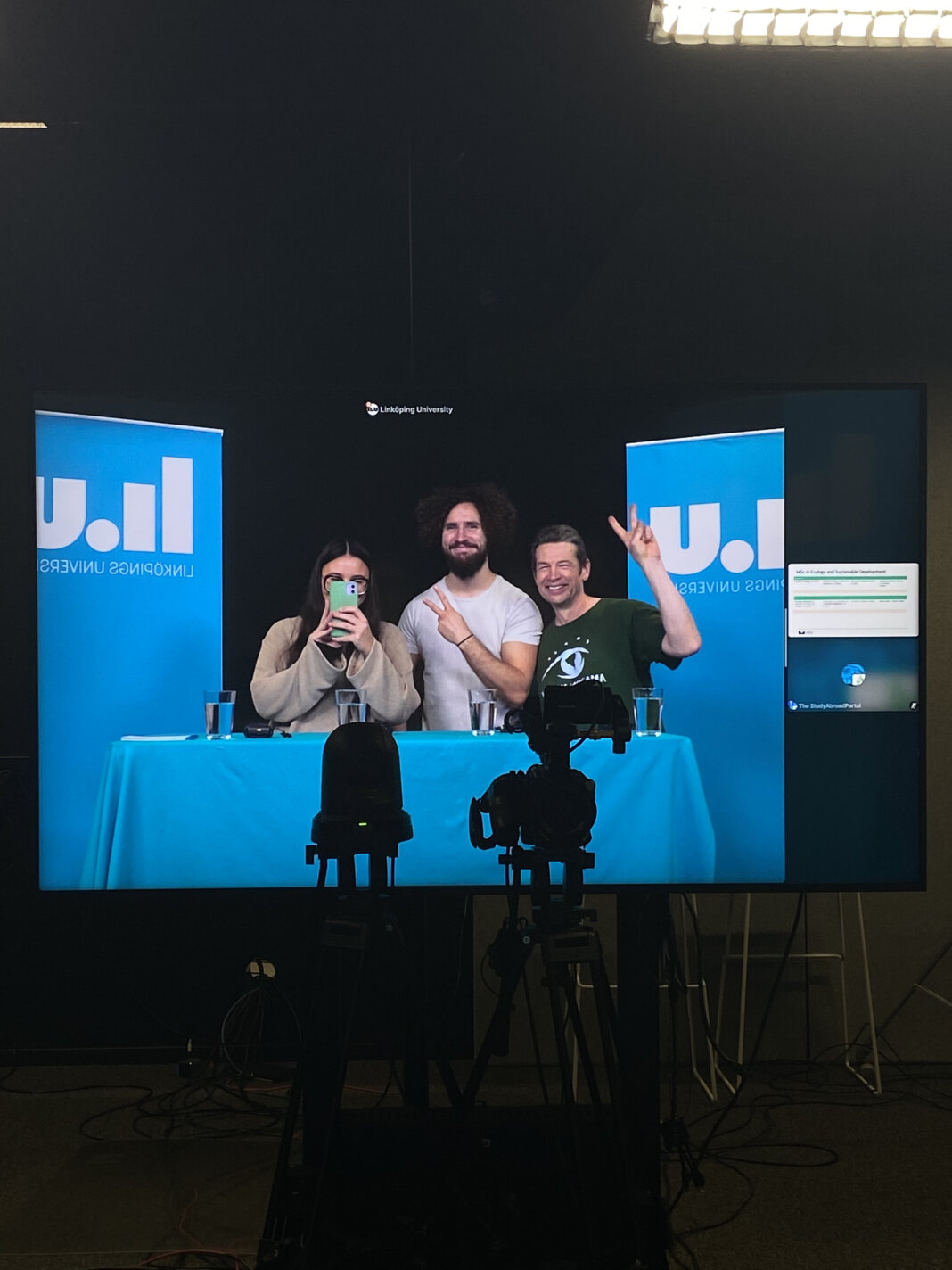December 1, 2022
What you should expect applying for MA Ecology & Sustainable Development
Hello dear readers – and especially to all those who are new here and are just about to decide where and what they might soon study: Welcome!
I remember when I was in your position not too long ago and decided to go to LiU, I scoured the blog and Instagram pages for more information about the courses I was interested in. With every bit of insight I was able to make a clearer decision for myself, so I hope this can help with the decision-making process for you too, give you some better insight into this programme, and set some realistic expectations.
The workload: Let’s start with something most of us want to know before committing to a new programme. As I said, I want to try to be as honest and unbiased as possible so that you can make the decision that is right for you. On the LiU website you will find the indication that it is a full-time programme, and that is exactly what I would call it, or in translation: this programme is a lot of work! When I started in the first month, the pace was pretty brutal, to be honest. I worked really long hours and we had weekly deadlines and presentations, which was quite overwhelming at first. But after the first month, I started to get used to how the work process was in my programme, how the courses were structured and what kind of work we were expected to do, and it became much easier to deal with. Of course, everything is also so new at the beginning, and depending on your background, you will be expected to do things you have never done before, and you might need more time than usual to get your work done. But it’s amazing how quickly you learn to adapt and how much easier it makes things. Not every week is equally exhausting, and there were certainly times when I could relax a bit more and work a few hours less a day. 🙂
Exams: This programme has no written exams. YES, you hear me right, no written exams!! Coming from a bachelor programme where exams and learning by heart was pretty much all we did, this was insane to me. But in this programme you are graded differently and in no course did you ever just have to do one assignment, but usually several different things. Let me explain a little better: So far, in no course have I had to give “only” a presentation or write “only” a report. Usually, all courses combine different types of skills that you will do during your studies. For example, a course might involve data analysis and exercises with a computer programme, then writing a report and then also a presentation. Or you might have to research a topic, go through scientific papers and try to find solutions to real-world problems, then try to communicate the science through writing, presenting and visuals like infographics. I think it’s really cool because it gives you the opportunity to improve and practice different skills and be creative while doing so! I really love that it was not just about studying (Of which I forget most anyways let’s be honest) – but problem solved learning, that will hopefully show you how you can approach problem in the future.
Coding:If you’re like me and have no experience with programming, this might be scary, but most of the courses in this degree programme involve some kind of programming or data analysis. And to be honest, it’s still not always easy and often frustrating, but I’ve found that it can also be quite fun when it works 😀 I’m really grateful that I had to start using RStudio (..) in this programme, because I think it’s good to be a bit familiar with it and it takes away some of the fear of these unknown skills :D. But you should know that it is definitely a big part of this programme and you should have a good computer to keep up with such things.
Student – Teacher relationship: Something that was very strange to me at the beginning of my studies was the informalities in Sweden. People call their professors by their first names and even make jokes with them… my previous bachelor programme could never LOL. No, but on a serious note, of course things are, and should be, still very much respectful, but I found that the professors are very approachable and always open to discussions and questions, I always had the impression that they wanted to see the students succeed. For me personally, this was one of the best things about studying in Sweden and I think I grew a lot because of it. Your ideas and enthusiasm is always welcome here and that creates a really good learning environment.
6 week Internship:In this programme you have to do a 6-week compulsory internship and I thought that was so cool. I thought it was great that we had the opportunity to actually work in the field we were studying. Of course, I was also nervous about finding a place that I would like, but I think I can be brief and say that this is definitely a bonus of this programme.
1 year Thesis: Aka.: Best thing ever. In this programme the thesis work stretches over and entire year. I will also write a blog next about how much work and effort this takes, so I will not say too much about this here, but I think this is such a cool opportunity to do some actual research that has the possibility to generate really cool results.
So, that was a little insight and overview of the Master’s programme in Ecology and Sustainable Development at LiU, I hope it helped you a little if you are still deciding or want to know what your expectations are. I wish you the best of luck with your admission process and results, and keep out an eye for more information on the 1year thesis process :). Talk to you soon, //M
____________________________________________________________________________________________________
Why not continue the conversation with us?
Start with checking out:Our programmes, the application process, webinars, and our Instagram and Facebook account.
Still left wanting more?
Book an appointment with our recruitment coordinator at infocenter@liu.se.




